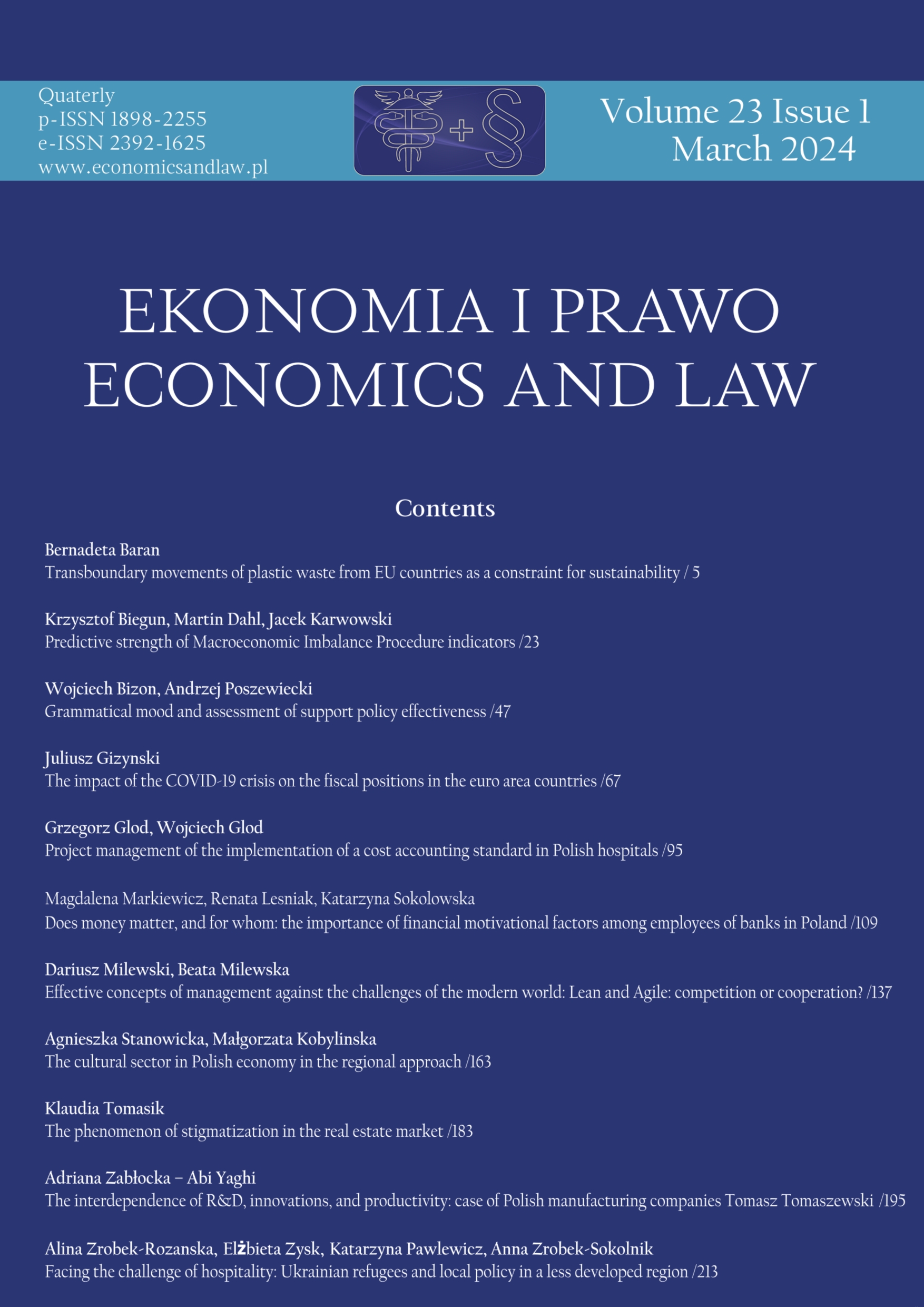The impact of the COVID-19 crisis on the fiscal positions in the euro area countries
The impact of the COVID-19 crisis on the fiscal positions in the euro area countries
Author(s): Juliusz GiżyńskiSubject(s): Supranational / Global Economy, Health and medicine and law, Public Finances, Socio-Economic Research
Published by: Wydawnictwo Naukowe Uniwersytetu Mikołaja Kopernika
Keywords: euro area; fiscal supervision; Coronavirus crisis;
Summary/Abstract: Motivation: The selection of the topic stems from the threat of a debt crisis in the euro area, as a result of the COVID-19 pandemic. The main research hypothesis has been formulated as follows: the COVID-19 pandemic has caused a significant deterioration of the fiscal situation in all euro area countries, which has led to a debt crisis within the zone.Aim: The main purpose of the article is to analyze and assess the impact of the COVID-19 crisis on the fiscal positions of the euro area countries, primarily from the perspective of the fiscal rules included in the Maastricht Treaty and the Stability and Growth Pact. Results: The COVID-19 pandemic led to a sharp economic collapse in the eurozonein 2020. Consequently, fiscal rules were suspended, allowing the member countriesto undertake significant fiscal interventions to mitigate the effects of the crisis. The pan- demic thus forced the authorities in these countries to employ Keynesian methods to sus- tain the economy. As a result of the severe recession and the temporary emergency meas- ures taken, public finances in the member states suffered significantly. The huge increase in the public debt ratios of some of these countries did not trigger a new debt crisis, how- ever. The new system of economic governance, which enabled the establishment and use of innovative stabilization instruments at supranational level, proved to be of great support here. The main research hypothesis has not been therefore entirely confirmed. The mutu- ally reinforcing effects of the eurozone’s fiscal policy and monetary policy were crucial for mitigating the effects of the COVID-19 crisis in its countries and supporting the economic recovery thereof in 2021–2022. The rapid development of the crisis has revealed the difficulties in the application of fiscal policy assessment indicators. Changes in the surveillance should lead to improved regulatory clarity and reduced regulatory complexity.
Journal: Ekonomia i Prawo. Economics and Law
- Issue Year: 23/2024
- Issue No: 1
- Page Range: 67-94
- Page Count: 28
- Language: English

